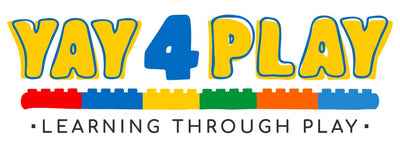Get started with doing structured activities with your child. There are so many advantages to building skills through play.
It’s a fabulous way of creating structure during the day and what better way to connect with your child at the same time!
Engaging activities don’t have to be complicated! Here our top tips to get started:
#1 Pick an easy activity to start with that you know they will like.
There’s no benefit in starting with something too challenging. Just take note of what your child uses mostly from the choice of available toys.
#2 Choose activities that your child is naturally drawn to.
Some children love the messy stuff. Others enjoy building with bricks.
Some children prefer building and others prefer breaking things down. Some children prefer playing with a lot of movement and others prefer to sit down.
#3 If your child really isn’t engaging or enjoying the activity, just move on.
Each child develops at their own rate and it’s pointless trying too hard if they just aren’t ready for that level of development.
#4 Make sure that you have all the instructions and the supplies or games ready.
You don’t always have to buy things – there’s lot of stuff around the home too! We always say that the kitchen (without the sharp pieces) is a perfect toy chest.
#5 Obviously an activity that build several skills areas at the same time is ideal. For example, building a train out of bricks can develop so many skills at once:
Children listen to instructions about the train and this helps with their focus and concentration.
They might have to measure the longest train and that helps them with mathematical concepts/
They are also using fine motor movement to strengthen the muscles in their hands so that they can perform tasks such as writing.
Remember:
- The average attention span of a 3 year old varies from 8-10 minutes!
If they give up on structured play and move to doing their own thing, that’s fine too!
- Don’t be afraid to repeat the same or similar activity a few times over. This iterative way of learning is great to embed the skills they need.
- If your child refuses to do the activity that you have set out for them, that’s okay. Children like to have a sense of control over what they choose to do. You can try the same activity at another time or involve siblings and friends to show your child that it is really good fun.
Have fun playing!
